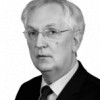Stop strikes and begin dialogue immediatelyThe mounting tumult in hospitals across the nation is indicating a worsening situation, as more and more trainee doctors are joining protests against the government's decision to raise the enrollment quota at medical schools. As of 10 p.m. Wednesday, 9,275, or 74.4 percent of the total trainee doctors across the country, have tendered their resignations. Of them, 64.4 percent, or 8,024, refused to return to work after applying for leaves of absence, according to the Ministry of Health and Welfare.
The disruption at Seoul's five major hospitals was further aggravated as junior doctors submitted letters of resignation en masse, declining to treat patients. Major hospitals in areas outside of Seoul also failed to provide proper medical services, as their doctors joined the protest. As the functioning of emergency rooms became compromised, patients in critical condition and their families were gripped by panic.
According to medical law, the health minister is mandated to instruct doctors to resume work and prohibit their collective actions. The government has issued a threat, stating that protesting doctors could potentially face suspensions of their medical licenses or even imprisonment unless they comply with the government's directives. Nevertheless, the doctors persist in their collective walkout, seemingly convinced that the government will yield to their demand to revoke the plan to increase the quota. Their decision to engage in such a drastic collective action is entirely inappropriate, as it inevitably endangers the lives of patients.
In fact, such moves have been commonplace. But their behavior of forgoing the well-being of the people for the sake of their interests should be terminated under any circumstances. Compared to Western industrialized nations, the nation's medical reform has made little progress.
Western nations have persisted in expanding the enrollment quotas of medical schools as a proactive measure to address the challenges posed by rapid aging and the potential shortage of medical professionals, particularly in rural areas. For starters, Germany has continued to increase the quota by 1 to 2 percent yearly to 11,752 in 2022. Germany plans to increase the number by 5,000. Britain is seeking to increase the medical school admissions quota to 15,000 by 2031, up 36 percent from 2021.
President Yoon Suk Yeol said the "enrollment quota increase has been the mission of the age that cannot be postponed any longer." He said during a Cabinet meeting on Tuesday, "The plan to increase the quota by 2,000 is the minimum level."
Now, it is time for both the medical sector and the government to come together for dialogue, seeking a resolution to the issue at hand. They should explore practical ways of settlement through dialogue and compromise. Doctors need to agree on the need to increase the quota. Representatives from medical schools also concurred on the need to raise the quota to a certain extent.
A sense of resentment has been intensifying in the medical sector over the government's unilateral way of dealing with the matter without consulting with doctors in advance. Therefore, it would be prudent for the government not to adhere rigidly to the plan for an increase of 2,000. The sudden increase of so many students will have adverse effects in recruiting professors and installing systems to teach the students. This will also exacerbate the quality of education.
The two sides should seriously consider the methods of gradually increasing the quota. They should meet halfway. Through such efforts, the medical sector and the government will be able to find a common ground toward the settlement of the current disputes.
The political parties, for their part, should roll up their sleeves to find appropriate solutions to the dispute instead of seeking their political interests only ahead of the April 10 general elections. Voters will closely observe to see which party offers the most effective compromise on this issue, enabling them to choose the candidate they believe will best serve the people's interests in the upcoming general elections.
Chaos at hospitals
 27
27
 0
22.02.2024
0
22.02.2024
Stop strikes and begin dialogue immediatelyThe mounting tumult in hospitals across the nation is indicating a worsening situation, as more and more trainee doctors are joining protests against the government's decision to raise the enrollment quota at medical schools. As of 10 p.m. Wednesday, 9,275, or 74.4 percent of the total trainee doctors across the country, have tendered their resignations. Of them, 64.4 percent, or 8,024, refused to return to work after applying for leaves of absence, according to the Ministry of Health and Welfare.
The disruption at Seoul's five major hospitals was further aggravated as junior doctors submitted letters of resignation en masse, declining to treat patients. Major hospitals in areas outside of Seoul also failed to provide proper medical services, as their doctors joined the protest. As the functioning of emergency rooms became compromised, patients in critical condition and their families were gripped by panic.
According to medical law, the health minister is mandated to instruct........
© The Korea Times
 visit website
visit website


















 Rtl Nieuws
Rtl Nieuws Gerry Van Der List
Gerry Van Der List Simon Rozendaal
Simon Rozendaal Annemarie Van Heijningen-Steenbergen
Annemarie Van Heijningen-Steenbergen Hendro Munsterman
Hendro Munsterman Reina Wiskerke
Reina Wiskerke Gerard Ter Horst
Gerard Ter Horst
